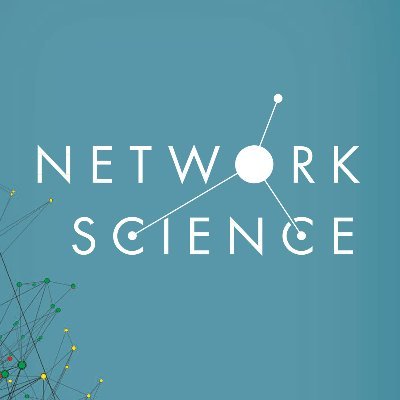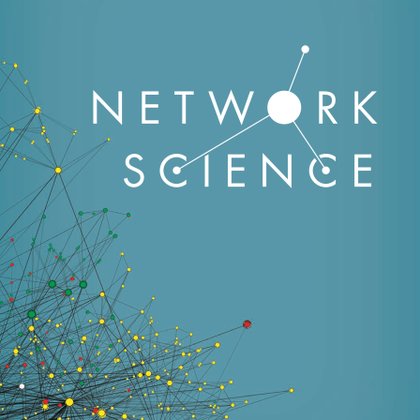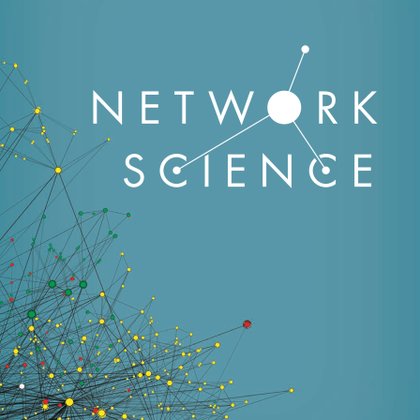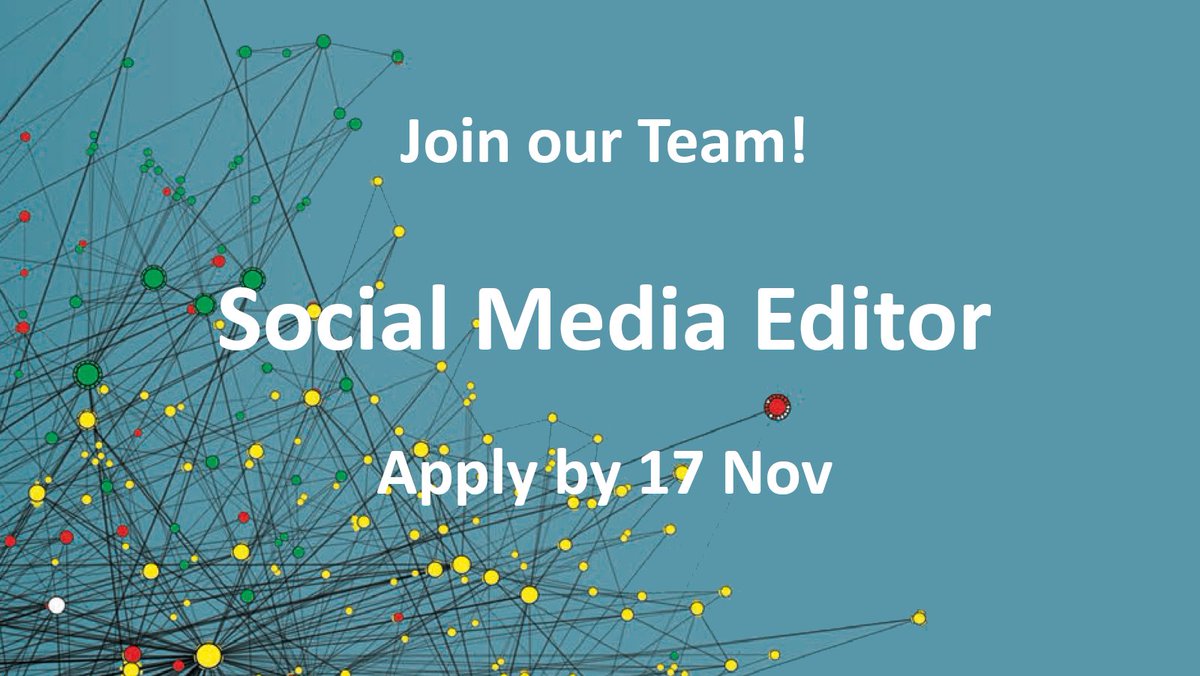
Network Science
@nws_journal
Followers
1K
Following
11
Media
15
Statuses
54
Network Science is an interdisciplinary journal aiming to consolidate and advance the emerging discipline of the same name. Published by @CambridgeUP.
Joined June 2020
RT @HocineCherifi: 🌐 Join us at COMPLEX NETWORKS 2025 – December 9–11, 2025 in Binghamton, NY, USA!. 🗓 Submit your contribution by Septembe….
0
3
0
🚀 Presenting at @IC2S2 in Norrköping? Extend the impact of your work!. 📢 Network Science Journal (@CambridgeUP) invites submissions on computational, empirical & theoretical advances in network research, now fully open access!. 🔗 Publish with us: #ic2s2.
cambridge.org
Network Science - Martin Everett, Matteo Magnani, Daniel Tischer, Tomas Diviák, Paolo Pin, Fernando Vega-Redondo
0
2
4
📢 CFP: Political Networks: New Trends and Directions . A call for a special collection of articles on how #network #analysis can illuminate fundamental questions across #politicalscience. ℹ️ Info: 🗓️ 15 Oct 2025. Collaboration with #PolNet-PaCSS2025.
cambridge.org
NWS and the PolNet-PaCSS conference are calling for papers for a new special collection in
0
11
27
❓Have you seen this thought-provoking article by Guillaume P. Fernandez yet?. 👉Centrality and social domains: The role of support, conflict, and ambivalence in the perception of linguistic similarity . 📖Read it on our website #OpenAccess here:
0
0
2
📣 📣 New Paper Alert!. A model of network redistributive pressure . By Salvatore Di Falco, Francesco Feri and Paolo Pin. 📖 Read the article #OpenAccess here: #networkscience #newpaperalert
0
0
2
CALL FOR PAPERS!. Pleased to announce a special issue on Polarisation in Social Networks planned for 2025. Consider submitting your work!. ℹ️ Read: 🗓️ Abstracts by: 31 Oct 2024.🗓️Full papers by: 31 Mar 2025. Editors: @Luca_Rossi_LR & @matmagnani.
cambridge.org
Network Science is calling for papers on Polarisation in Social Networks (abstract deadline October 31, 2024)
0
6
15
Call for Papers EXTENSION! . Submit by 1st September to take part in the Network Science special collection on Network Approaches to Attitudes and Beliefs. For more information: All articles made #OpenAccess. Editors @_CZucca, @LorienJasny, @KoehlyLaura
0
0
0
📢 Call for Papers! . Network Approaches to Attitudes and Beliefs.🗓️ Deadline: 1 May 2024.👉 Info: Consider submitting your work to this #OpenAccess special issue in NWS, arising from a recently @ECPR workshop. Editors @_CZucca, @LorienJasny @KoehlyLaura.
cambridge.org
Network Science Special Issue: Network Approaches to Attitudes and Beliefs
0
9
9
Join us as a Social Media Editor!. Network Science @CambridgeUP seeks a creative individual to join its team to develop the audience for the journal. For more information, see: Good role for graduate student with interest in the field.
0
2
3
How is gang violence contagious? @GravelJ, @MattValasik, @Joris_Mulder, @SNAnalyst @CarterButts, @tanaro1 et al explore direction & temporal order of conflicts between LA gangs with REMs. They find that retaliation is key, but also other mechanisms matter.
cambridge.org
Rivalries, reputation, retaliation, and repetition: Testing plausible mechanisms for the contagion of violence between street gangs using relational event models - Volume 11 Issue 2
0
2
6
Renshaw et al. probe coordination related hub-forming mechanisms in 17 radio communication networks during the 2001 WTC disaster through the use of REMs and simulations, showing that microdynamics of local conversational norms lead to macroscopic outcomes.
cambridge.org
Modeling complex interactions in a disrupted environment: Relational events in the WTC response - Volume 11 Issue 2
1
0
2
How fast do we forget our past social interactions? @GiuseppeArena, @Joris_Mulder, & @SNAnalyst aim to understand memory retention with parametric decays in relational event models using statistical methods, simulations, and two empirical case studies.
cambridge.org
How fast do we forget our past social interactions? Understanding memory retention with parametric decays in relational event models - Volume 11 Issue 2
1
1
2
@auzaheta, @c_stadtfeld, & Viviana Amati extend Dynamic Network Actor Models (DyNAMs) by including random-effects parameters that vary across actors or contexts. The new model is applied in a case study of interaction dynamics on an online platform.
cambridge.org
Random effects in dynamic network actor models - Volume 11 Issue 2
1
0
3
A new paper of Cannon & Robinson examines the intersection of social status and conversational norms in face-to-face task groups using relational event models.
cambridge.org
A simplest mathematics of turn-taking: Conversational deep structure, emergence, and permeation - Volume 11 Issue 2
1
1
2
A pioneering article by @sehaunss and @jhollway studies multimodal mechanisms that are driving discourse dynamics using bipartite Dynamic Network Actor Models (DyNAMs).
cambridge.org
Multimodal mechanisms of political discourse dynamics and the case of Germany’s nuclear energy phase-out - Volume 11 Issue 2
1
1
2
@cornelius_fritz, @MariusMehrl, P Thurner, & @GKauermann propose an REM for Spurious Events, an extension to existing approaches for interaction data. They employ the model to combat events from the Syrian civil war and student co-location data.
cambridge.org
All that glitters is not gold: Relational events models with spurious events - Volume 11 Issue 2
1
0
3
New special issue on Relational Event Models! In the editorial, @CarterButts, A Lomi, T Snijders & @c_stadtfeld discuss how relational event data and models have shaped network research over 15 years, how the field matured, and future trends to be expected.
cambridge.org
Relational event models in network science - Volume 11 Issue 2
1
2
9






